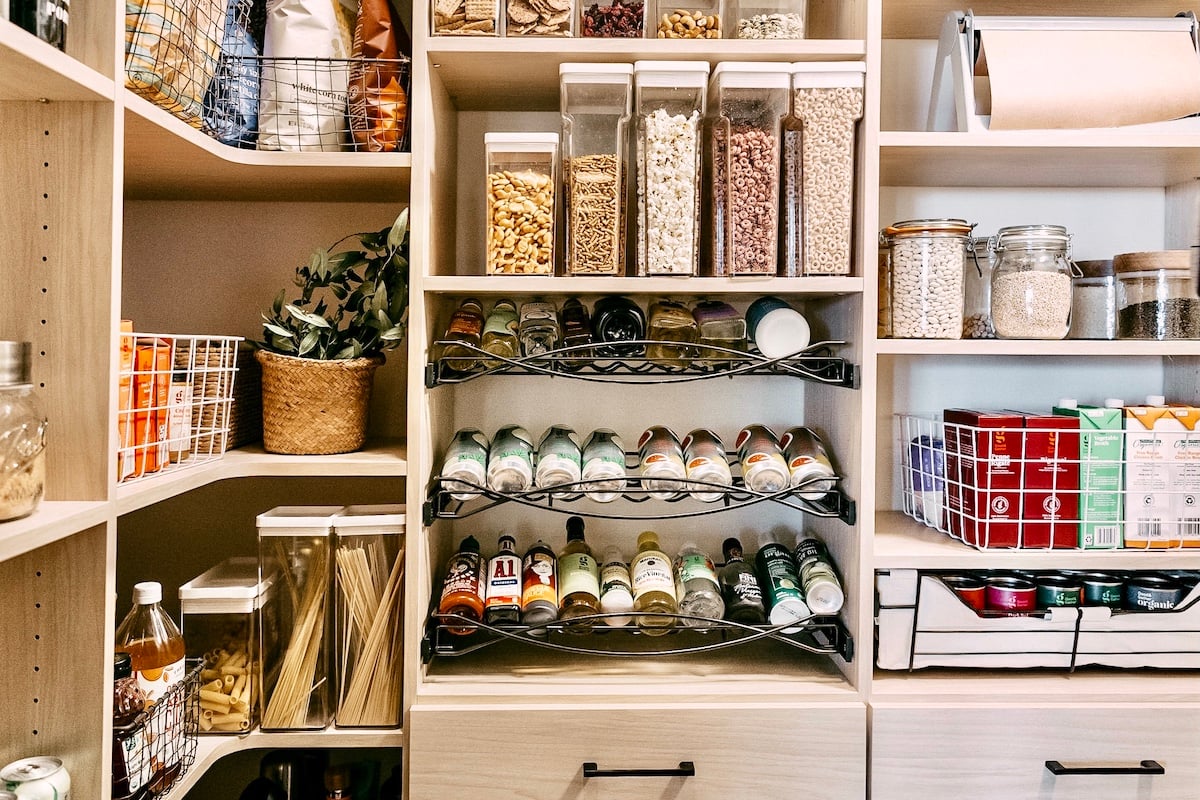Is the gig economy all that bad? How S’pore-based platforms have stepped up to support gig workers
We delve deeper into the facts and data to see how gig economy platforms have been stepping up on welfare for such workers.

The gig economy has seen massive growth over the past few years, and this has drawn the attention of supporters and critics alike.
During the National Day Rally 2021, Prime Minister Lee Hsien Loong brought up the disadvantages that lower-wage workers, including gig workers, faced in terms of protection.
Yet, the demand for flexibility from the workforce has continued to fuel the growth of the gig economy, and it appears that this model is here to stay.
What really led to its development? Why are gig workers doing what they do, and what have companies been doing to alleviate the purported disadvantages that gig economies face? Perhaps, then, it is time to examine this topic in deeper detail.
For a start, the gig economy is defined as a system where people work as part-time, temporary, or independent contractors.
Instead of receiving a fixed monthly income, a gig worker earns based on one-time projects or “gigs” that they complete. This makes for a flexible work environment, in which individuals can choose how much time they want to dedicate, and how many jobs they want to take up.
In turn, gig work platforms have also begun putting in place initiatives and benefits in order to look after their workers and keep them engaged on the platforms – which we will discuss further later on.
The gig economy’s massive growth in Singapore
According to the Ministry of Manpower (MOM), the number of freelancers in Singapore was around 10 per cent of all employed residents. Globally, a 2019 World Bank estimate suggests that the gig economy workforce has grown consistently, at around 30 per cent annually.
The Covid-19 pandemic has also contributed significantly to this growth. The MOM reported that there were around 228,200 freelancers in Singapore in 2020, as opposed to only 211,000 in 2019.
The number of gig workers has increased and include traditional self-employed professions such as real estate agents, sports coaches and taxi drivers, as well as platform-work based occupations such as private-hire vehicle drivers and delivery-riders.
Key contributors to the growth include companies like Grab, Gojek, and Deliveroo. Individuals sign up for gig work because the gig economy provides them with unique opportunities that full-time work does not.
Why are more people signing up for gig work?
The gig economy provides various opportunities for those who are not able to commit to full-time work, and this impact should not be understated.
This industry is an inclusive one that fulfils a niche for those who do not fit into models of traditional employment, and allows for all individuals to secure some form of income, in spite of other circumstances.
An independent study by Blackbox Research on gig workers showed that 99 per cent of them expressed job satisfaction, and CEO of Blackbox David Black further noted that “riders value the ability to make their own economic choice to enter and stay in the gig economy”. Almost all in the survey agreed that flexibility was a factor in their choice to do gig work.
A Grab spokesperson interviewed by Vulcan Post revealed that “on gig workers’ end, our platform workers appreciate flexibility in their work arrangements, which they are not able to enjoy in most conventional employer-employee arrangements. They are free to switch between platforms, set their own work patterns and hours, multi-home, and take on other work outside of Grab.”
Similarly, the 2021 MOM Labour Force Report notes that flexibility was a top reason why workers engaged in gig work. Another survey done by Grab also stated that 84 per cent of their long-term riders and drivers chose to work in the gig economy because of its flexibility. One particular Grab rider cited childcare needs and family commitments as the primary reason for switching from a full-time job to gig work.
This is not a situation unique to Grab. Julian Tan, founder and CEO of FastCo – the parent company of FastGig, a jobs platform that links gig workers to employers – noted that “a large proportion of these workers choose to take up gig work for the flexibility it gives them.”
He added that companies are also increasingly becoming more open to providing new gig opportunities because of the unpredictability of their business demands.
Besides flexibility, the gig economy also provides a backup plan for many other individuals: workers who are retrenched, those without sufficient educational qualifications, or those who are simply in-between jobs.
The gig economy itself acts as a form of insurance, for those who fall through the cracks of a more traditional work model and are not suited for full-time work.
Refining the gig economy model with benefits for workers
Indeed, while the gig model does serve the needs of the workforce, how can we better refine it to offer workers even better benefits and protection?
Yeo Wan Ling, a spokesperson for the National Trades Union Congress (NTUC) told Vulcan Post that “food delivery riders are a particularly vulnerable group as they are unable to claim for work injuries under the Work Injury Compensation Act (WICA) despite being susceptible to skids and falls in wet weather.”
“Medical coverage provided by platform operates is currently inadequate and uneven, leaving little to no income support for riders if they are on medical leave,” she added.
According to a report by the World Health Organisation and the International Labour Organisation, growth in the gig economy has contributed to an increase in worker deaths for those who work over 55 hours a week. The report blames low pay, social isolation, overwork, and exhaustion among other factors.
 Image Credit: Grab
Image Credit: GrabWe must, however, take note that these are general, worldwide circumstances, and are not necessarily applicable to Singapore. In fact, many Singapore-based companies have been very proactive in protecting their gig workers, and all three food delivery platforms offer personal accident insurance.
FastCo, for one, offers a variety of gig work from verified businesses, and takes on the role of processing timesheets and payroll on behalf of its clients to ensure that its “giggers” get paid weekly and on time.
It also works together with its clients to ensure that the gig workers are covered by suitable insurance while they’re on-the-clock.
Similarly, Grab offers a suite of protections for their gig workers, including insurance for accidents, critical illness, and prolonged medical leave. This means that drivers and riders who get into accidents, or have the misfortune of falling ill, will be eligible for payouts from Grab.
During the height of the pandemic, Grab also introduced Covid-19 income support, which provided drivers and riders a lump sum payment of up to S$500 for those placed on quarantine orders or hospitalised, or up to S$1,000 for those diagnosed with the virus.
Other benefits for Grab’s drivers and riders include discounts on fuel, vehicle rental, mobile plans, and even car servicing – which all help to significantly reduce their operating costs.
Given that some workers engage in gig work precisely because they are unable to find employment elsewhere due to reasons such as lacking educational qualifications, it’s also a common perception that job progression or moving into full-time work is not possible.
Having identified this issue, Grab also strongly encourages its riders and drivers to take courses for upskilling through its GrabAcademy platform, with many courses available in areas like digital and financial literacy, as well as customer service. The company offers a bonus payout for those who choose to take such courses.
“As an open and flexible platform, Grab is committed to leveraging our technology to support our driver- and delivery- partners in achieving their goals,” said the Grab spokesperson.
There are many courses available in areas like digital and financial literacy, as well as customer service. Grab also uses it as a platform to onboard new riders and drivers, and offers a bonus payout for those who choose to take further courses beyond those required for onboarding.
In addition, Grab consistently engages with their workers with monthly online engagement sessions known as GrabTalk to find out the concerns of Grab drivers and riders, and to act on these concerns.
In fact, this initiative began even before the pandemic began, with weekly ‘Grab A Drink’ sessions with around 200 riders and drivers turning up for physical engagement sessions.
Grab has also gone the extra mile by teaming up with Intellect and Ngee Ann Polytechnic to launch a Mental Wellness Programme targeted at gig workers.
Platform companies need to keep things running smoothly
Ultimately, fair treatment of gig workers is necessary if these platforms want to keep their services running; the different parts of the ecosystem need to be balanced.
While companies such as FastCo and Grab are businesses first, they have shown with actions that social impact and responsibility for their gig workers are also a key focus – even without legally mandated policies in place.
These companies also need to be able to survive in order to continue providing their services to consumers and, in turn, earning opportunities to gig workers. As such, it would be sensible to expect a commitment to beneficial practices towards gig workers from platforms like Grab, FastCo, and more.
Improving the gig economy is not a one-man job
Everyone has a part to play in bettering the gig economy, and Grab – which is one of the biggest drivers – has been proactively leading the way. With a growing pie of gig workers, efforts to take care of them must be made.
MOM for one, has recently established the Advisory Committee to look into ways to help platform workers, in key areas such as work terms and conditions, better working conditions, as well as medical and injury coverage.
Beyond that, other platform companies are, too, catching on and advocating for gig worker welfare through holistic coverage and engagement sessions.
It is understood that Grab, too, is also in active dialogue with the MOM and the Advisory Committee on their review on enhanced protections.
Companies like Grab and FastCo host engagement sessions to better understand the needs of gig workers, and have pushed out policies to help them even before many people probably even took notice.
If this is not an indication of their commitment to the welfare of their gig workers, what is? Certainly, there are still gaps to be addressed, and it would take the combined efforts of all players – companies, government and even consumers alike to refine the model towards sustainable gig worker welfare.
But gig platform companies are trying to do their part to protect their workers, and their efforts don’t go unrecognised.
Whether it’s due to an enlightened self-interest, social responsibility, or both, it is clear that platform companies are stepping up to protect their workforce, regardless of whether they’re full-time or gig workers.
This article was written in collaboration with Grab.
Featured Image Credit: Grab

 JimMin
JimMin 































